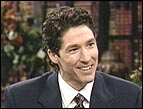Debating Atheism (part 4)
This is the continuation of an ongoing discussion I am having with Theomorph. We are discussing the recent debate, "Does God Exist?" between William Lane Craig and Austin Dacey. Here are my initial comments regarding his take on the debate. You might then read part 2 and part 3.
Craig must believe that those who do not agree with him are either "ignorant, irrational, or willfully defiant" according to Theomorph. If Craig does not believe his opponent is either of those, then his arguments must not be the only reasonable option.
Dacey pointed this out in one of his very first remarks. He said that Craig's willingness to even debate something he claims to be an open and shut case indicates that he must doubt his own claims to some degree and afford some level of reasonableness to the atheist perspective.Would this not also follow for Dacey? If your statement is correct, Dacey must therefore, doubt his own doubting to be having a debate about God's existence. I don't believe that Craig feels his arguments are the only reasonable assertions. Something is reasonable if it is rational and logical. Does something have to be true in order to be reasonable, rational or logical? When the earth was assumed to be the center of the universe, were humans being rational? Absolutely! Were they correct? No. But, something is not determined reasonable by its truth or error.
Is it logical to assume that creation demands a creator? Yes, but it is also logical to assume that creation exists by the multiplication of species that have evolved from one uncausable cause, apart from a creator. Is one more logical than the other? I think so, but that doesn't mean that someone who agrees with the latter statement is irrational or willfully defiant. To be willfully defiant assumes the truth. A Christian who believes that the Bible is God's word but gets a divorce for unwarranted reasons (scripture warrants divorce for infidelity) would be considered willfully defiant. He/she has already accepted the truth of scripture. An atheist has not come to the same conclusions, therefore they could not be willfully defiant.
That leaves the option of ignorance. Does disagreeing with Craig make you ignorant? That depends on the truth of his statements. If what he says is true, then yes, to disagree with him is ignorance (assuming the reasons for doing so are not irrationality or willful defiance which I don't believe is the case for atheists). I was ignorant of the truth of scripture prior to accepting it. I know many others who were ignorant as well. Some people are willfully defiant, not wanting to face the truth because they enjoy their secular lifestyle. You have stated that you would need an "experience of God" to believe in Him. If there truly is a God, and He never bends to your demands for an experience of Him, would that make Him any less real? To box his existence to fit into your demands could only be considered ignorance if He does exist.
For example, I don't believe man ever walked on the moon and the only way you could convince me otherwise would be to take me to the moon and allow me to walk on it myself. Would I be ignorant of the truth? I would be as long as man truly did walk on the moon. A lack of knowledge or understanding doesn't change reality. We could say the same thing for someone who has never heard of math. They are ignorant of its truth.
There is no such thing as, "What's true for you is not true for me" (as tolerance seems to be defined today). That statement is self-refuting by simply defining truth. But that's beside the point. If ignorance is the state of the atheist what does that mean? I think I can anticipate your next assumption. If ignorace is the atheist's problem, how can God hold them accountable? Is punishment appeased by ignorance? I'll save my response to that for another post.



